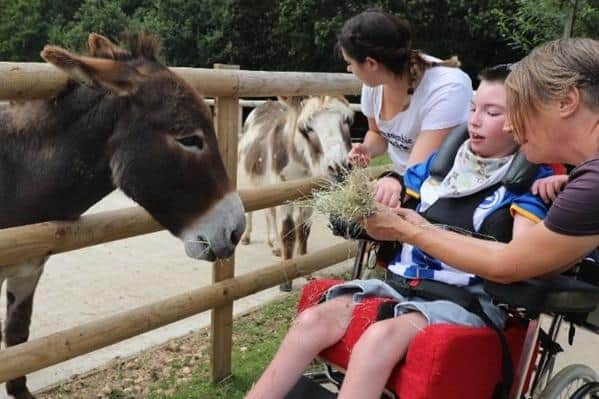National Vintage Tractor Road Run 2024 takes place in East Sussex village on Easter Sunday
and live on Freeview channel 276
The road run will take several hours after tractors leave Plumpton at 10am.
The tractors will then travel to Falmer and onto the South Downs before heading through Lewes, Barcombe, Cooksbridge and back to Plumpton.
Advertisement
Hide AdAdvertisement
Hide AdThe Road Run is an annual event and is hosted by a different region each year. This year the South East Vintage Agricultural Club (SEVAC) are hosting the event and have chosen Patchwork Farm at Chailey Heritage Foundation as their charity.


Ben Agar, Business Development Director, Argo Tractors UK and Ireland, said: “We are delighted to be supporting Patchwork Farm through this event."
Volunteers supporting Chailey Heritage Foundation will be in Lewes to collect donations as the tractors drive through town. People donate via a Just Giving Page as well here.
The estimated route timings are: Leaving Plumpton College (not open to the public) at 10am, passing Woodingdean 10.45am to 12.45pm, passing through Lewes 12pm-3pm, Passing Cooksbridge 1.15pm-3.45pm, and returning to Plumpton College 1.30pm-4pm.
Advertisement
Hide AdAdvertisement
Hide AdA Chailey Heritage Foundation spokesperson said: “Chailey Heritage Foundation is one of the UK’s leading centres for children and young people with complex neurodisabilities. Most of the amazing young people have cerebral palsy, and many have visual impairment and dual sensory impairments. All are wheelchair users and very few can communicate verbally.
“Patchwork Farm, is the onsite therapeutic farm and is fully wheelchair accessible farm offering the children and young adults at Chailey Heritage, as well as visitors, an interactive, multi-sensory, outdoor learning experience by: increasing confidence in exploring new and different environments, improving emotional wellbeing helping to visibly reduce frustration, exposing them to new sights, sounds, smells and textures, which is particularly beneficial to those with sensory impairments, developing different forms of communication. From signing animal names to hearing and mimicking animal noises, young people have developed their communication by interacting with the animals.”
Comment Guidelines
National World encourages reader discussion on our stories. User feedback, insights and back-and-forth exchanges add a rich layer of context to reporting. Please review our Community Guidelines before commenting.
